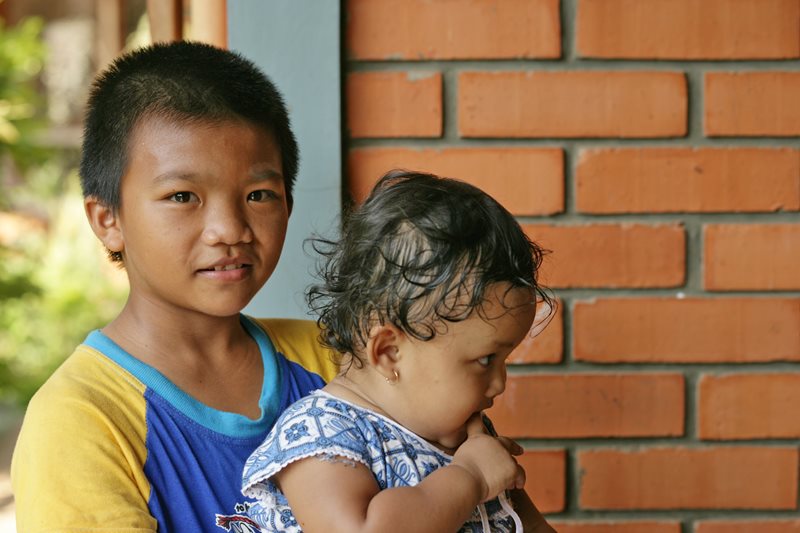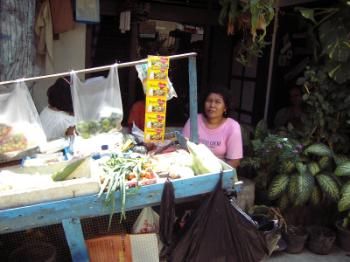An increasing number of people are living in slums

The city of Semarang is located on the north coast of Java. It is the capital of the Central Java province and an important regional commercial centre, especially due to its port. Semarang's economy depends mostly on the service sector and on small industries which manufacture and process goods.
Like many urban areas in Indonesia, Semarang has to cope with numerous social problems, such as poverty, unemployment and homelessness. Many people have moved to the city in search of a better life, but are struggling to make a living. They often work in informal, seasonal and badly paid jobs in the construction or transport industry or as street vendors. Young people and single mothers find it particularly hard to make a living.
The lack of adequate housing has become a problem in the city, with an increasing number of people living in slum conditions with no access to basic services. To make matters worse, the settlements are often located in high areas which are prone to flooding. These conditions lead to a high prevalence of epidemics such as dengue fever, diarrhoea and skin diseases.
When families are living in these deprived settings, it is often the children who suffer most as the parents struggle to make ends meet. Children growing up in these circumstances are very vulnerable, since they are especially susceptible to illnesses associated with malnutrition and poor sanitation facilities. Some parents here do not manage to provide their children with the amount and type of food they require. Other parents manage to meet the basic needs but can only dream of sending their children to school. These social and economic conditions have a huge impact on family life, and many fall apart, leaving children without parental care.
Providing families with the support they need
SOS Children's Villages started working in Indonesia in the early 1970s. The country has experienced many changes in the decades since, and our activities have increased over time in order to reach a growing number of vulnerable families and children. Our most recent family strengthening programmes adapt to the needs of the local population.What we do in Semarang

In 2005, SOS Children's Villages Indonesia launched its first family strengthening programmes. Working with local authorities, we aim to support families at risk of abandoning their children and to encourage them to stay together. The SOS Social Centre in Semarang offers counselling in various fields, community support and psychological support. The programmes are designed to ensure that children have access to essential services, such as education, health services and psycho-social therapy. Families are given food or assisted with income generation, and they receive help when dealing with the authorities. By attending workshops and self-help groups people's parental skills and awareness of children's rights are improved. At regular intervals we also provide medical check-ups and physical therapies. In addition, the SOS Kindergarten provides day care for up to 90 children. To parents who have to earn a living it is very important to have professional day care for their children, so that they are not forced to leave them unattended while they are at work.
For children whose families can no longer take care of them SOS Children's Villages provides a loving home in one of the 14 SOS families, where they grow up with their brothers and sisters and are cared for by an SOS mother. These children can attend the SOS Kindergarten, where they are taught together with children from local families. Older children attend the local schools, which helps them become part of the community. The children take part in many activities in the community, and SOS families will also get involved in supporting local families in need. For example, in the past, mothers and children have cooked and distributed food to flood victims in the area.
When young people are ready to move out of the SOS families they join our SOS Youth Programme when they start vocational training or go on to higher education. With the support of qualified professionals, the young people develop perspectives for their future, learn to shoulder responsibility and increasingly make their own decisions.